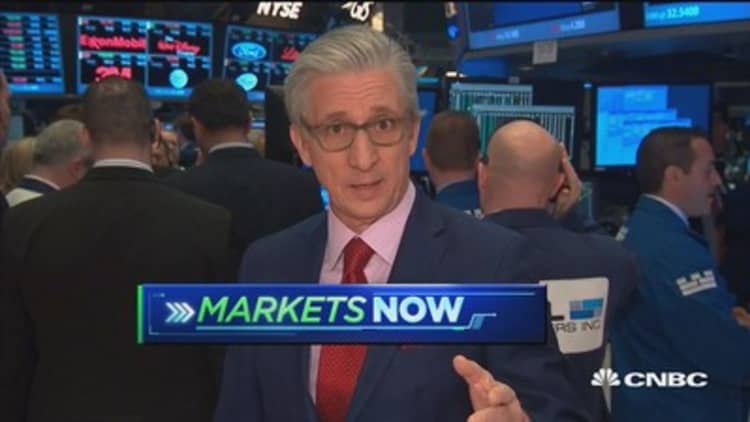
There's been a lot of excitement about the U.S. earnings season, and with good reason: S&P 500 earnings are expected to grow roughly 10 percent, led by roughly 15 percent gains in the two largest sectors, Technology and Financials.
But the slow improvement in the global economy has analysts even more bullish on investing outside the U.S. Goldman Sachs is anticipating first-quarter earnings will be up 17 percent for the STOXX Europe 600, which represents a basket of stocks across 17 European countries, and 16 percent for Japanese stocks. Even Emerging Markets are seeing an improving earnings picture.
The picture is the same for the full year: across the board, overseas earnings estimates look better than the U.S.:
Global earnings 2017
(estimates)
S&P 500: up 10.0 percent
Japan: up 12.1 percent
Europe: up 14.4 percent
Emerging Markets: up 19.3 percent
Source: JPMorgan Cazenove
Investors have responded. Overseas markets have either performed in-line or outperformed U.S. markets year-to-date:
Global markets 2017
(YTD)
S&P 500: up 5.5 percent
Europe (STOXX 600): up 5.5 percent
Indonesia: up 6.5 percent
Japan (Topix): down 2 percent
Source: JPMorgan Cazenove
The exception to the outperformance--Japan--has had problems because of a stronger yen.
What's behind the spurt in earnings?
- Economic growth is picking up overseas. While U.S. GDP is improving, expected to go from 1.6 percent to 2.1 percent in 2017, GDP growth is also improving in the Eurozone (2 percent in 2017), Japan (1.7 percent, a notable improvement over the anemic 1 percent growth in 2016), and Emerging markets (4.6 percent), according to JPMorgan Cazenove.
- Corporate pricing power has improved. Oil, for example, has bottomed. Oil prices are considered proxies for global growth; global earnings momentum is also strongly linked to commodity prices in general, which began rising last year.
Stronger growth and better pricing power alone will be a boost to corporate margins. But
- Stocks are cheaper overseas. Europe is trading at 15.3x 2017 earnings, well south of the roughly 18.4 multiple the S&P 500 sports. So is Japan (15.6), and Emerging Markets (12.5), according to JPMorgan Cazenove.
- The U.S. business cycle is
in a late stage, but not so overseas. - Political risk may be fading in Europe. That risk--first from the Netherlands election and still from the upcoming French election--held European equities back in January and February but those concerns have faded recently, as Goldman Sachs recently noted, pointing out that the Europe-over-the-U.S.-trade "has further to go as Europe tends to outperform when global growth is strong and political risk is fading."
- Government bond yields bottomed in Europe in September, and in January for Japan. This has been supportive for banks.
- A more stable dollar has been a big help to emerging markets.
What could go wrong?
Currency fluctuations are big issues when dealing with global stock flows. Japanese stocks have suffered due to a stronger yen. The biggest risk is a sudden surge in the dollar, which would hurt the reflation trade and likely lead to more capital outflow from Emerging Markets. The weaker euro has recently acted as a help for earnings in Europe, though it's doubtful that will continue.
Political risks have not altogether vanished in Europe. You could also see a sudden change in European politics toward populism.
There's also
And economic growth may even be better than expected. JPMorgan says Eurozone PMI, at 56.4 in March (the best since April 2011), is consistent with nearly 3 percent annualized GDP growth.
Sectors? It's all about the reflation trade: Energy, Materials, Industrials,
JPMorgan Cazenove thinks Financials are a play on a domestic recovery and higher bond yields (though those higher yields have stalled recently). They recommend overweighting that sector, as well as Mining stocks, which are cheap and experiencing a strong earnings recovery.


